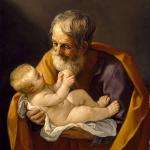vs. Lucas Banzoli
Lucas Banzoli is a very active Brazilian anti-Catholic polemicist, who holds to basically a Seventh-Day Adventist theology, whereby there is no such thing as a soul that consciously exists outside of a body, and no hell (soul sleep and annihilationism). This leads him to a Christology which is deficient and heterodox in terms of Christ’s human nature after His death. He has a Master’s degree in theology, a degree and postgraduate work in history, a license in letters, and is a history teacher, author of 25 books, as well as blogmaster (but now inactive) for six blogs. He’s active on YouTube.
The words of Lucas Banzoli will be in blue. I use RSV for the Bible passages unless otherwise indicated.
This is my 18th refutation of articles written by Lucas Banzoli. As of yet, I haven’t received a single word in reply to any of them (or if Banzoli has replied to anything, anywhere, he certainly hasn’t informed me of it). Readers may decide for themselves why that is the case.
*****
I’m replying to a portion of Lucas’ article, “E não a conheceu até que…” [“And knew her not until…” ] (8-16-12).
The fact that Matthew also adds that Mary gave birth to her “firstborn” (v. 25) also indicates that she had other children. Otherwise, he would simply have written that Jesus was his “only son”, as the Bible often states in other cases, where in fact there were no other brothers in the family. . ., as in the case of the widow of Nain, whose “only son” (Lk. 7:12) had died, and of the man who wanted to cast out the devil from his son, because he was his “only son” (Lk. 9:38).
Why is it not written in these cases that they were her firstborn sons? Because they were his only children. When someone was the first of other children of the same mother, it is common for the Bible to call “firstborn”; however, when he is not only the first but also the only one, the word often used is “only child”, . . .
This is a decent argument, and deserves a reply. I would note, however, that the phrase “only son” (applying to persons other than Jesus) occurs in the New Testament (in the RSV) only twice (Lk 7:12; Heb 11:17), while “only child” appears exactly once (Lk 9:38). This is why Lucas mentioned the two instances in Luke, because they are two out of only three total. For whatever reason, the New Testament uses these terms very rarely.
But I still grant that the argument carries some force, which is why I am writing about it. If Lucas asks me why it is that Jesus is never called an “only son”: a thing that would put this whole controversy to rest (which would have been a good thing!), I reply, “I have no idea.” We can’t figure everything out in the Bible or understand why some things are written and others are not written, which would clarify and put a lot of historic controversies to rest.
Yet our inability to fully understand is to be expected when we are talking about an inspired revelation that comes from an infinitely intelligent, omniscient God. So I don’t know, and I don’t have the slightest embarrassment or shame in admitting that. There are lots of things we don’t know about God, theology, and the Bible.
That said, the Catholic can still “turn the tables” on the Protestant and demonstrate by several solid analogies that this difficulty (of something not explicitly and clearly stated in the Bible that presumably or seemingly ought to be if a thing is true) is not unique to us. Protestants have several major ones of their own, along the same lines. If this factor is a “problem” for Catholics, so it also is for Protestants (and I say, in several far more problematic and more internally inconsistent ways).
The two “pillars” of the so-called Protestant “Reformation” are sola Scriptura (the Bible only as the only infallible rule of faith) and sola fide (justification by faith alone). Yet neither thing is explicitly spelled out in the Bible; not even close. Here is how three prominent modern-day Protestant apologists define sola Scriptura:
What Protestants mean by sola scriptura is that the Bible alone is the infallible written authority for faith and morals. (Evangelical Protestant Norman Geisler: Roman Catholics and Evangelicals: Agreements and Differences, Grand Rapids, Michigan: Baker Books, 1995, 178; co-author, Ralph E. Mackenzie)
The doctrine of sola scriptura, simply stated, is that the Scriptures alone are sufficient to function as the regula fidei, the infallible rule of faith for the Church. (Reformed Baptist James R. White: The Roman Catholic Controversy, Minneapolis: Bethany House Publishers, 1996, 59)
Scripture . . . is the only inspired and inherently infallible norm, and therefore Scripture is the only final authoritative norm. (Reformed Protestant Keith A. Mathison: The Shape of Sola Scriptura, Moscow, Idaho: Canon Press, 2001, 260)
See also various “classical” Protestant definitions: all consistent with the above. Such a thing is never remotely stated in the Bible. It doesn’t exist, period. I’ve written three books about the topic and I have sought for such a verse and asked every Protestant I debate with to come up with one. It’s not there. Even a prominent (and worthy and able) Protestant apologist like the Lutheran pastor Jordan Cooper recently freely conceded this point:
I think the question that we have is: do we have to find a particular Scripture that says Scripture is the only authority? And I just don’t think we have to. We don’t. There’s nothing in — you can’t find — in any of Paul’s letters, for example, . . . “by the way, Scripture is the only authority and traditions are not an authority and there is no magisterium that is given some kind of infallible authority to pass on infallible teachings.” It seems like a lot of Roman Catholic apologists think that for Protestants to defend their position, that they have to find a text that says that.” I think, more so, what we have to do is just speak about the unique authority of Scripture and the unique nature of Scripture, and just to say that Scripture does present itself as God-breathed. 2 Timothy 3:16 is kind of the famous text that says this . . . [1:39-2:35, in the video, “A Defense of Sola Scriptura“ (3-12-19)]
Does sola Scriptura have to be spelled out in the Bible in order for the view to be self-consistent and valid? Of course it does! I’ve laid out that rather straightforward and solid argument elsewhere. I recently expressed it in a nutshell, in a Facebook reply to another Protestant YouTube Apologist, Collin Brooks (modified slightly):
It’s my contention that sola Scriptura, by its very nature, must be able to be defended from Holy Scripture, or else it is viciously self-defeating, and a mere arbitrary tradition of men: as such, not worthy of allegiance, and of no compelling authority.*Protestants have, nevertheless, made it their formal rule of faith, without the grounding in Scripture that it must have in order to consistently be granted such an imposing epistemological status.*In my opinion, this must be done before the discussion can sensibly continue. Why do Protestants hold to sola Scriptura in the first place? It becomes an example of “the emperor is naked.” Protestants refuse to grapple with the shocking realization that it has no scriptural basis.*Whether or not any given Catholic can defend his own critiques of sola Scriptura and assertions of the infallibility of Church and Tradition or not (I think I can, if I do say so), it remains the burden of Protestantism and Protestant theologians and apologists to demonstrate how and why sola Scriptura is a biblically required doctrine, over against the constant Catholic apostolic tradition that directly contradicts it. And Catholics must press this point, because it’s so absolutely fundamental and necessary for Protestants to adequately explain their rule of faith in a non-self-contradictory manner.
James 2:24 (RSV) You see that a man is justified by works and not by faith alone.*James 2:26 For as the body apart from the spirit is dead, so faith apart from works is dead.
Acts 5:3-4 But Peter said, “Anani’as, why has Satan filled your heart to lie to the Holy Spirit and to keep back part of the proceeds of the land? [4] . . . You have not lied to men but to God.”
1) Ananias lied to the Holy Spirit.2) The same act of Ananias is also described as his having “lied to God.”
3) Therefore, the Holy Spirit is God.
1) If sola Scriptura is true, why doesn’t the Bible simply state something akin to the classic Protestant definition? And, lacking that, why do Protestants accept it as Gospel Truth anyway and make their entire theology dependent on a thing never asserted in the Bible?*2) If sola fide is true, why doesn’t the Bible state something akin to the classic Protestant definition? And, lacking that, why do Protestants accept it as Gospel Truth anyway and make their entire soteriology dependent on a thing never stated in the Bible, and a thing the Bible condemns at least twice (James 2:24, 26)?*3) Why didn’t the Bible make it easy for all Christians and state which books are included in it? Instead, the Church had to go through a 400-year process to reach consensus, only to have Protestants decide to throw out (demote) seven Old Testament books 11oo years later, and we have been wrangling about which books are in the Bible ever since. All God had to do to prevent all that was provide a list that was itself inspired and infallible. But He chose not to. Why?*4) Why didn’t God state through His inspired revelation: the Bible, that denominations are fine and dandy and part His will for Christianity: with His blessing!? He chose not to. We say it is because the notion is against His will, since it’s condemned over and over in Scripture. Yet Protestants think they’re perfectly acceptable in the final analysis, since they have no way to prevent their proliferation, and so they simply don’t care that denominations are utterly absent from the Bible. Well, some do, but they’re helpless to do anything about it.*5) Why didn’t God make the divinity of the Holy Spirit clear in the Bible, or much more clear than He did?
***
Practical Matters: Perhaps some of my 4,000+ free online articles (the most comprehensive “one-stop” Catholic apologetics site) or fifty books have helped you (by God’s grace) to decide to become Catholic or to return to the Church, or better understand some doctrines and why we believe them.
Or you may believe my work is worthy to support for the purpose of apologetics and evangelism in general. If so, please seriously consider a much-needed financial contribution. I’m always in need of more funds: especially monthly support. “The laborer is worthy of his wages” (1 Tim 5:18, NKJV). 1 December 2021 was my 20th anniversary as a full-time Catholic apologist, and February 2022 marked the 25th anniversary of my blog.
PayPal donations are the easiest: just send to my email address: [email protected]. You’ll see the term “Catholic Used Book Service”, which is my old side-business. To learn about the different methods of contributing, including 100% tax deduction, etc., see my page: About Catholic Apologist Dave Armstrong / Donation Information. Thanks a million from the bottom of my heart!
***
Photo credit: Virgin and Child with Four Angels, by Gerard David (c. 1450/1460-1523) [public domain / Wikimedia Commons]
***
Summary: Why doesn’t Scripture call Jesus an “only child”? Good question! I don’t know why. But I do know that there are at least five similar “problem areas” for Protestants, too.














